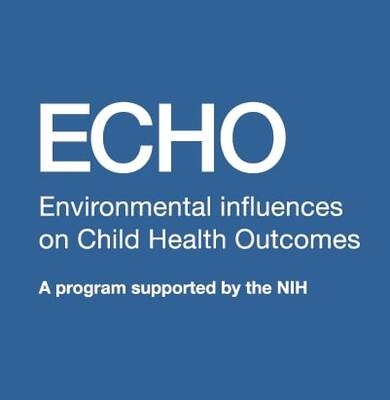DURHAM, N.C., Jan. 27, 2023 /PRNewswire/ — Prenatal exposure to perfluorononanoic acid (PFNA), a chemical sometimes found in food or drinking water, is associated with autism-related traits in children, according to a new study funded by the Environmental influences on Child Health Outcomes Program (ECHO) at the National Institutes of Health.
PFNA belongs to a group of chemicals known as per- and polyfluoroalkyl substances (PFAS), which are widely used, long-lasting chemicals known as “forever chemicals” because they do not break down easily and can build up in the body over time. To evaluate the relationship between prenatal exposure to PFAS and autism-related traits during childhood, this study looked at 1,224 mother-child pairs from 10 ECHO cohorts across the United States. The researchers measured the levels of eight different PFAS in blood samples collected from mothers during pregnancy. Later, caregivers reported on their child’s autism-related traits.
“By continuously measuring the development of autism-related traits, we were able to examine whether prenatal PFAS exposure may affect the development of autism-related traits, even when a child does not receive a clinical ASD diagnosis,” said Ghassan Hamra, PhD, an ECHO Program investigator at Johns Hopkins University Bloomberg School of Public Health.
“In the U.S., exposures to some specific PFAS, such as PFOA and PFOS, have dropped substantially since the industry voluntarily phased these chemicals out in the early 2000s. However, other PFAS exposures have increased over time,” said Jennifer Ames, PhD, an ECHO Program investigator at the Kaiser Permanente Northern California Division of Research.
Dr. Ames and Dr. Hamra led this collaborative research published in Epidemiology.
Ames, J. et al. Prenatal exposure to per- and polyfluoroalkyl substances and childhood autism-related outcomes. Epidemiology. DOI: 10.1097/EDE.0000000000001587.
About ECHO: ECHO is a nationwide research program supported by the NIH. Launched in 2016, ECHO aims to enhance the health of children for generations to come. ECHO investigators study the effects of a broad range of early environmental influences on child health and development. For more information, visit echochildren.org.
About the NIH: NIH, the nation’s medical research agency, includes 27 Institutes and Centers and is a component of the U.S. Department of Health and Human Services. NIH is the primary federal agency conducting and supporting basic, clinical, and translational medical research, and is investigating the causes, treatments, and cures for both common and rare diseases. For more information, visit www.nih.gov.
![]() View original content to download multimedia:https://www.prnewswire.com/news-releases/nih-program-study-links-prenatal-exposure-to-perfluorononanoic-acid-with-childhood-autism-related-traits-301732481.html
View original content to download multimedia:https://www.prnewswire.com/news-releases/nih-program-study-links-prenatal-exposure-to-perfluorononanoic-acid-with-childhood-autism-related-traits-301732481.html
SOURCE NIH Environmental influences on Child Health Outcomes (ECHO) Program



